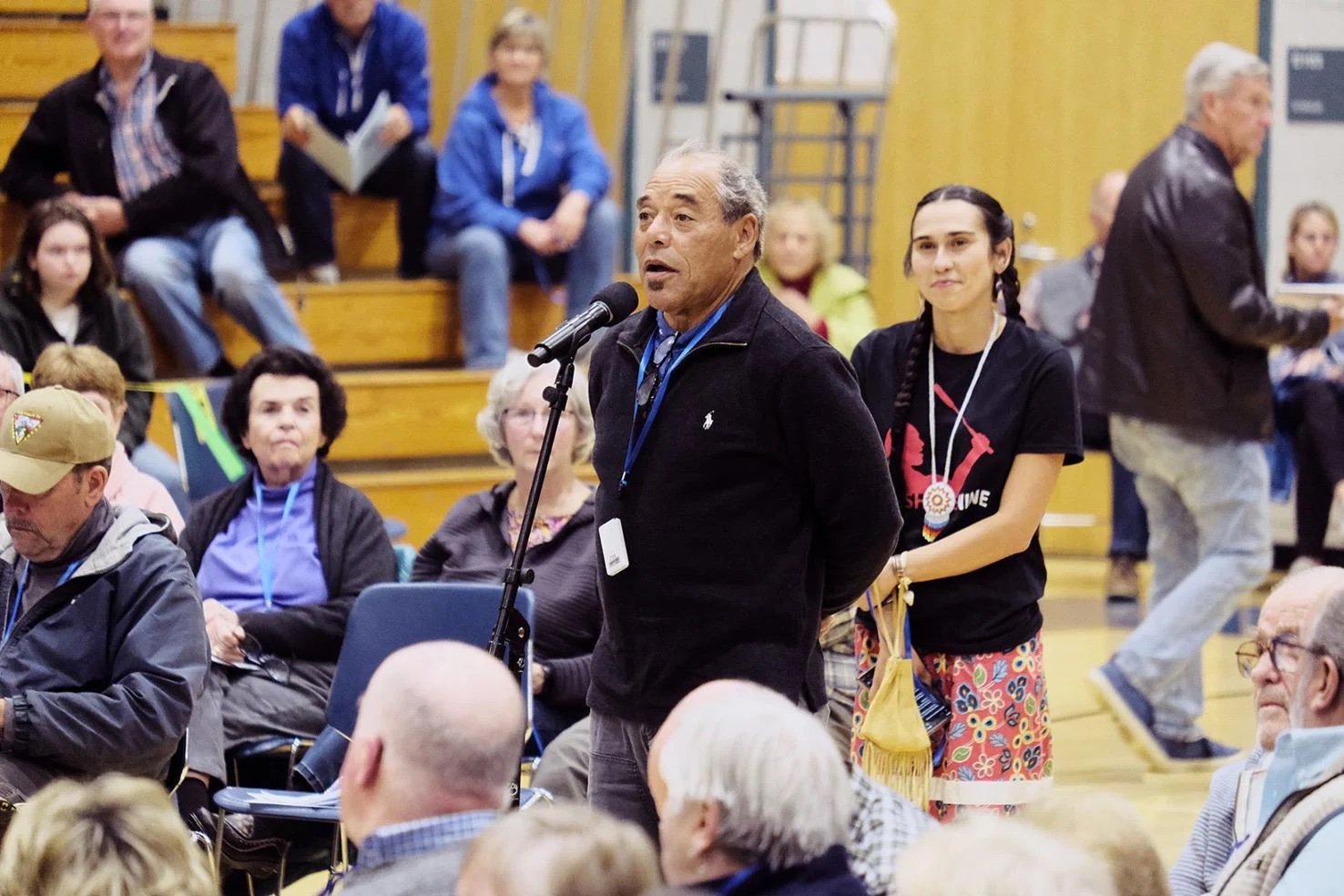Town Meeting Articles Pass: Town to Transfer Property for Cemetery and Open Door to 12 Acres
The process to transfer more than 13.5 acres from the town to the tribe will begin after Article 10 and Article 12 passed at the Mashpee Town Meeting on Monday, October 16th.
About 594 voters attended town meeting, which began at 7 PM at Mashpee Middle-High School. Throughout town meeting, there was significant debate swirling around wastewater expenditures, Additional Dwelling Units, or ADUs, and the preservation of trees throughout Mashpee. But a significant amount of Mashpee Wampanoag tribal members turned up to support the transfer of four town-owned parcels of land, which equals to roughly 13.63 acres, to Tribal jurisdiction.
While Article 10, which surrounds the expansion of the Old Indian Meetinghouse Cemetery, passed with zero discussion and 455 votes, multiple tribal members stepped to the microphone to discuss Article 12.
The warrant article asked Mashpee residents to transfer three town-owned land parcels 35, 415 and 409 to Tribal jurisdiction. The parcels are at 35 Lake Ave.; 409 Main St.; and 415 Main St. and will make way for the construction of a true replica of a Wampanoag village. Chief Earl Mills Jr. said the passage of Article 12 would be a big win for the tribe, but also a considerable win for the community with the construction of the Wampanoag village.
"The citizens of the town will benefit. This is an educational project, but it's also a reason for people to come into Mashpee and spend their dollars at our local businesses," he said.
Tribal Elder Darryl Wixon also spoke during the discussion period, and said future generations of children, of all backgrounds, will be able to learn about Wampanoag culture together.
"We are the people of the circle of life. The people of the first light. We are asking you to stay connected with us," he said. "If we keep this disconnection going, none of us will exist. All our relations."
Darryl said the passage of Article 12 gives town residents and tribal member an opportunity to coexist in a positive way.
Nathan Adams of Mashpee said he is in favor of the Wampanoag village, but is concerned that the Mashpee Pond town-owned beach will be privatized under Tribal jurisdiction.
"I am concerned that we are about to sign over a public beach," he said. "I don't want to live in a place where we have some beaches for this ethnic group and some beaches for that ethnic group. We are going to end up separated."
Talia Landry said there's no intent on behalf of the Tribe to privatize the Mashpee Pond beach. In addition to the town, the Mashpee Baptist Church owns part of the beach, Talia reminded voters. That ownership doesn't keep town residents off the beach, she said.
'There's nobody telling you that if you aren't a churchgoer, you can't go on that side (of the beach)," she said. "This will be the same concept as that."
It is not in Wampanoag culture to erect gates or fences, she said.
"That's just not our way," she said.
For Dasia Peters, the project will benefit all of Mashpee - especially the youth.
"It's not easy growing up Indigenous in spaces where you don't always feel represented or seen," she said. "The establishment of this homesite will give our kids a desperately needed space to learn and practice their culture in an area that holds so much significance for our people."
Article 12 passed with 393 votes.



